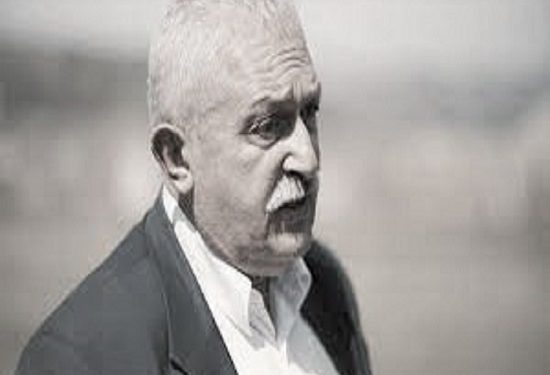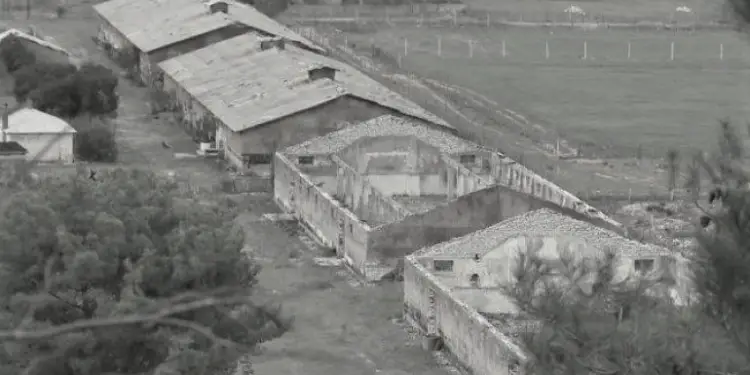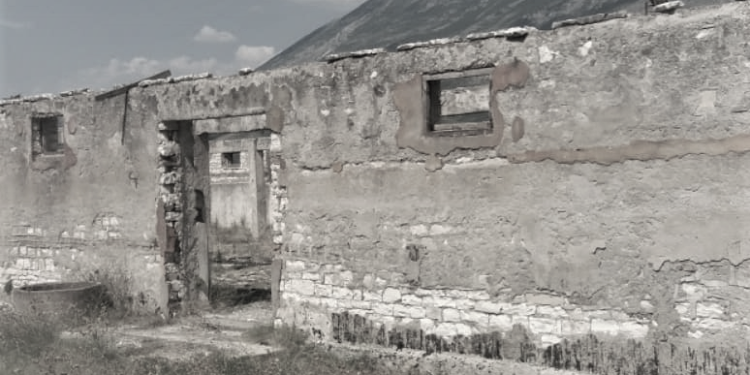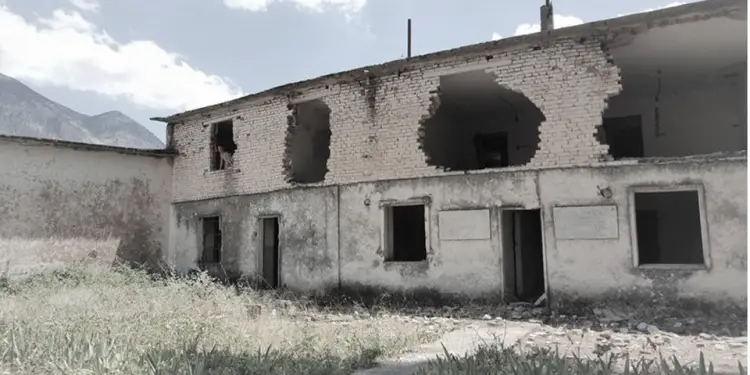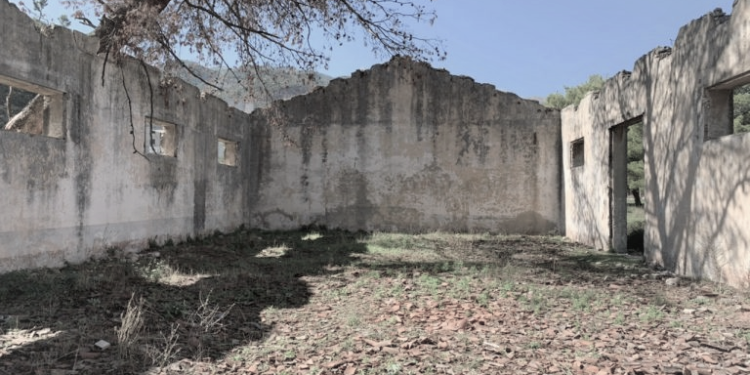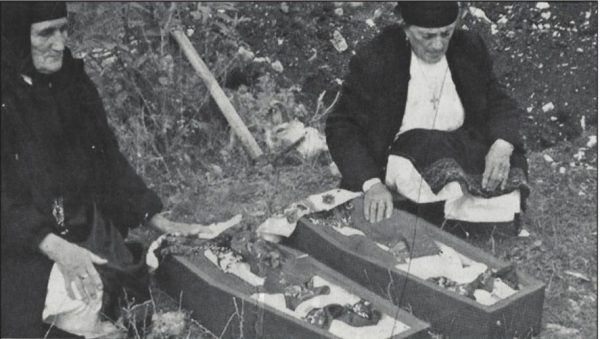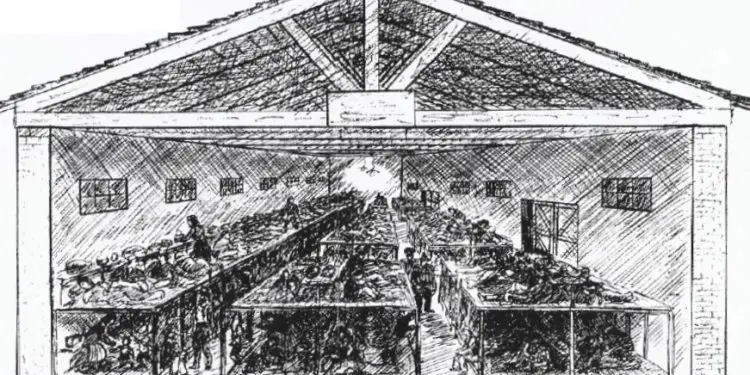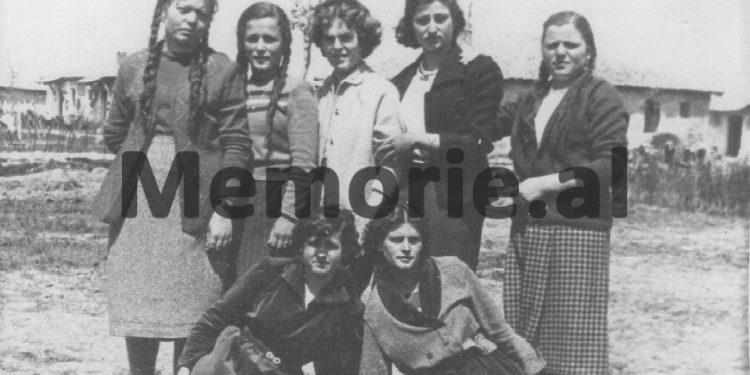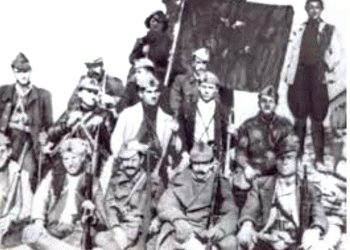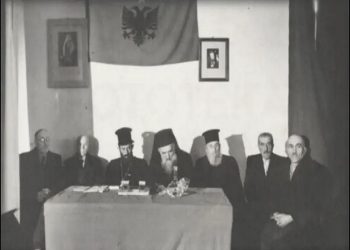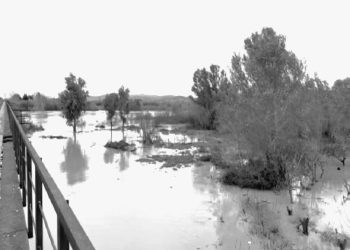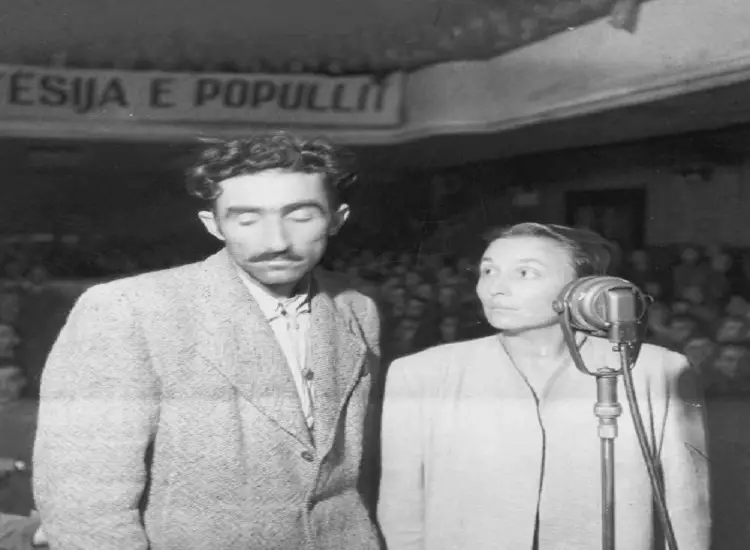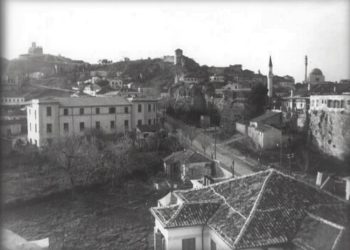By Marcel Hila
Second part
Visit to places of suffering, death and disappearance
It was August 23, 2019. We left Tirana for Tepelena. We arrived after about three and a half hours. Because, I believe it is known by everyone, this day is the commemoration of the victims of totalitarianisms, worldwide: Nazism, Fascism and Communism. The Information Authority for State Security Files, where I work, had planned a memorial visit to the former Tepelena camp, a place of internment in the period 1949-1953.
The bus bringing the work personnel arrived. Some had come in their cars. We entered the large courtyard, in the camp of the former camp, once a military ward, built by the Italians, during the Italian-Greek war 1940-1941 and remained so until their departure.
Continues from last issue
– How old were they?
– Many young people, many…!
– How was the meeting with you, with the mother?
– They came to Savër and when they arrived, they asked a man if his mother was here and told him her name. They pointed to where we were staying. Then, they came from the place where we lived. Mother was at the village tap, nearby, where we lived. When they saw the mother, it is understood that they did not know her, and they asked about her. The mother almost fainted, because the eldest son was a copy of the father. He recognized him by his appearance. He told him that he knew a woman with this name, while the mother, who was about to wake up, called her brother by name and said: – Bad son, mother, it is me! There, then, she burst into tears, in oil, while the two boys jumped on top of her and there was no one to separate them. Come on; don’t cry for us who were taking the interview…!
Then a meeting was held in the cinema of Tepelena. Who spoke and who did not speak. Someone was asking for compensation that he had not received; another about why Saliu was not punished for disrupting the Associations of the Persecuted, another was looking for the remains of the dead in the camp, but he had not been able to find them and take them to his distant village, in Kukës. The Bektashi cleric, Dervishi, spoke as well, moving on to arguments so quickly without getting too deep, like a bird from branch to branch, that in the end we heard little. The mayor also spoke.
After that we left for Kilcyre. We would have lunch at a restaurant by Vjosa. We were accompanied by a cadre of Tepelena municipality. In the ongoing discussion, we find out, from his mouth, “that more than 70 percent of Tepelena has fled, escaped. Now, even though all the villagers of the area have come to the city, they are still leaving. After ten years I don’t know who will be in the appeal!”, – Alexi tells us with gas on his lips.
We ate bread and left for Gjirokastra. We arrived, because it is close. The afternoon went by quickly. The next day, just as the mayor had arranged, we went to a meeting with senior officials of the Municipality, to present to them in a few words the activities we carry out as an institution of the Authority for Information of the Former State Insurance Files. The building where the meeting was to be held was on a high point of the city, in what was called the obelisk, the building that had once been the primary school, where the dictator, in his childhood, had learned and was now owned by the municipality, of course, repaired and equipped with modern tools, with computers and luxury tables. The walls are full of maps, paintings, prominent photographs from the city.
In fact, we were very tired when we got up there. A senior representative of the team of the city municipality participated there, as well as the director of museum facilities and two or three other people, all with duties in cultural and social historical entities. We started the conversation. They showed us, in short, the figures, which for them are successful and promising, because… here, how the number of tourists was increasing, how they had secured a good income as a museum, that restaurants, cafes and hotels were working well, but also how repairs had to be made in some roads and areas
Then it was our turn to show what we did. The president spoke about this and little by little we came to the topic: “We are looking for those killed and disappeared by communism, which are many in number, all victims, all innocent and all without a grave. In that short exchange of experiences, we find out that the high representative of the municipality, present at our meeting, had the grandfather of the Head of the Department of Internal Affairs. We open our eyes. So he belongs to a family that was not persecuted, but… he takes the word himself and says: – “not persecuted, but once in a position. I don’t know anything, because I was little when communism fell, about six years old, but now later, my grandmother told me that my grandfather came home from work upset, that they asked him to torture the arrested and with difficulty get the statement that they were guilty, that they wanted to do this and that, but that they were not guilty, but so they asked him…”
– Couldn’t grandfather resign from this job – someone asks? – Why would he do a job that didn’t suit him, since he was bored?
The girl stirred, then frowned and looked with a little anger at the brave questioner. She opened her eyes and faced the challenge that had a bit of irony, but that had required courage, that reminded her that her grandfather did not have the human substance – the morals – to leave voluntarily, and in a half voice, upset, said: – no, he has not resigned!
– Why?
– I don’t know, he doesn’t live anymore. I can’t ask! – He said angrily this time. The proper sensitivity for the afflicted, for the tortured and killed, is not seen to be reflected on her face. And as for a polite intervention, after recovering, he says:
– The grandmother, with democracy, told me that the people who were arrested and punished were not guilty, but the officers and personnel of the Department of Internal Affairs were forced, because they were asked to do so from above, from Tirana, the Ministry of Internal Affairs. He is convinced, understandably, because if he were to leave, another would come in his place. What was the difference? Why leave, when nothing would be achieved?
– Nothing! – Someone over there supports the speaker.
– Nothing! – fills the mouth of the senior official, satisfied that help came to her at the right moment.
– You are with the Socialist Party, I believe? – The intrepid inquisitor changes the direction of the conversation.
– Yes, yes, it is not discussed, it is the best party in Albania… well, – he continues and asks that the conversation, which has already taken another path, change direction. – Shall we go see the city castle? – He asks.
– Of course!
– The top floor, all the way up, served as a prison. There are many tourists who come to see it. Come on, let’s go!
We came out. We went down from where we went up. We made our way down the narrow and winding alleys, heading towards the famous castle. It has been a prison since 1928 and this is also mentioned in the former reports of the former Ministry of the Interior, Directorate of Prisons. There are some documents that the inspectors sent there by this institution for control talk about this prison, about the year it was opened and its characteristics. It is said in one place, in a report, that some cells were more fortified than others, because inside they found the killers, called katils. Then, as soon as the communists came to power, it took the name of the prison of the seven windows. A terrible place of suffering.
The memories of former prisoners speak of massacres and tortures carried out there. We enter; we climb, better to say, because the whole castle is uphill, until we reach the top. Walk in the corridors. We enter the former cells, which today are part of the museum. It’s hot. We are looking for water. A tap is nearby with running water. A guard serves us to fill the plastic bottles we have with us. Then, at the end of the corridor, a big flag, with the eagle, our flag. When we are all together, an invitation comes to us from the leader, the Cicero, as we search for the missing. He tells us that, and he knew this well, that:
– “On the left side of the castle, at the very top, from the height, the dead who gave up their souls in the time of communism, in the early years, as long as it was a prison, were thrown straight down the slope. A stream flowed there”, – he continues – “since the autumns and winters it was full of water and even flooded”!
Let’s get there. A large door with two iron gates opens. We exit the castle, always from the south side. We walk in that small space, that only those who have seen it, have the idea. – “Here” – he says, and points from below. We look up and see that the escarpment is very steep and, while we are confused trying to clarify what it is about, Cicero continues to tell:
– “The dead from torture, wounds or diseases were not buried, they were not taken out of the prison through the main door of the castle to take them somewhere, but they were thrown down, and the corpse of the dead was broken and mutilated. It arrived in pieces down”! – We see. There is a good chance that the slope is more than two hundred meters down. – “If it was raining, it fell into the raging waters, which took the dead with them and, after he had rotted, the bones did not know where they ended up with time”!
– What about summer?
– When there was no water in the stream, an Evjite, Visho Rrahimi, who had a wheelbarrow, went with one of his colleagues, Rrahman, and collected the bones of the dead, broken into pieces, and put them in the wheelbarrow. From there he took her somewhere…
– Where?
– It has never been agreed!
– Why?
– He was ordered never to reveal the place where the dead prisoner ended up.
We look up in horror.
– Here, down there, they arrived in pieces. Visho Rrahimi would pick them up the next morning early, because he checked at that time.
– Is this guy dead or alive?
– He lived until recently, but when he was asked by the family members of those who were looking for the dead, he did not know who they were.
– And the place where he drove them, did he tell him?
– Several times he said that he did not remember where he had buried them.
– He didn’t remember them?
– Maybe he didn’t even remember – answers Cicero, – maybe he took them to many places and lost his memory, maybe he didn’t want to show that he was afraid, he thought he might get into trouble, he was old, child he had, he didn’t want to leave it to them…!
– Have any of his children been asked?
– One of his sons is still alive and when asked, he says that his father did not tell him anything…!
– Which years are we talking about?
– For the beginnings until there from the year 1950.
– About five years?
– Likewise, – the speaker continues, – but during this period, many, many prisoners died, mainly from the North, because their family members did not have the opportunity to come and see them and they were without help, without food, without medicine, and they died a lot, many young people, all accused as thugs and criminals, as those who had opposed the National Liberation War, saboteurs or who had sheltered saboteurs, or who had joined them…!
I remembered one, Gjin, Gjin Lleshi, from Manatia e Lezha, whose grandson still makes a lot of efforts to find his grandmother, who died in 1948 in this prison of this fortress. One day, while I was getting clarifying elements from him, this nephew told me that – “Axha tried to escape with the Germans, at the end of the Second World War, when they were leaving Albania. He got into their trucks and was started. It was just that he was afraid of the communists! He was young, only twenty years old, who had not yet reached his full term. He had mixed with anyone during the war: neither the communists, nor the ballistas, nor the zogists. The trucks had taken the road from Han of Hoti and from there to Croatia and Austria.Fortunately, he escaped all the bombings.
Arrived in Germany. Happy to have reached the land he dreamed of. The naive Albanian desert! He had not realized that he had to choose the territories liberated by the allies, English and Americans. He arrived where the Russians had entered. Then, as is the craft of the communists, who want to know everything and control even the hair, they had made endless checks to see who lived in the territory occupied by them. And this desolate Gjin Lleshi, since he had to be registered somewhere, to be sheltered and fed, declared he Albanian, who had fled with the German troops
… – Why did you come here with the Nazi trucks? – was the question they asked him? – I wanted to run away! – But you have abandoned your country, now that there is a need more than ever for work and commitment? He was speechless. He was arrested and brought to Albania bound. He was tried. He was sentenced to life imprisonment. Accusation? It has given support to the invading Nazis. He pretended that he only wanted to get away from the war. But no. – It does not deceive us in any way. You went with the German troops and sabotaged the National Liberation War of our people and that of Yugoslavia.
Life imprisonment. In the prison of Gjirokastra! And after many, many requests that the deserter had made to be transferred to a closer prison, where his family could come to see him, the twenty-one-year-old, one day he died of illness: he had caught a bad cold as well as from not being fed”. His grandson told me the same thing that I saw with my own eyes: “dead, thrown down by this sharp knife, by this strong rock!” and his friend, colleague Rrahman, they took him like that, broken into pieces, broken in several parts, with a cracked skull and all the fractures in his spine, and they put him in the cart and took him somewhere.
– Where? – I asked my nephew.
He told me he didn’t know where. “I also went to the city cemetery, at the exit on the road that leads to Saranda, but there is no trace there.” – “They say”, – continued the fifty-seven-year-old grandson, – “that these dead people were buried in a place, which later became an Industrial School, and when the foundations were opened for its construction, the excavator brought out many bones, but no one I don’t know where those human remains ended up”!
This is how one learns that human life was worth so much and the right of family members to have their relatives have a grave where they can rest their remains has come to an end in time.
They tell us, they recommend us, they advise us that, when desperate family members ask us if they should hold out hope that a grave will be found, we must tell them that we will do something, we will try, very, very definitely, that this is in our goals, in our duties!
But at least, for these deserters, this word will never come true. Evgjiti Visho, with his zeal, was much more efficient than any of our efforts, also helped by modern technologies, which are expected to be available to us soon. Memorie.al




